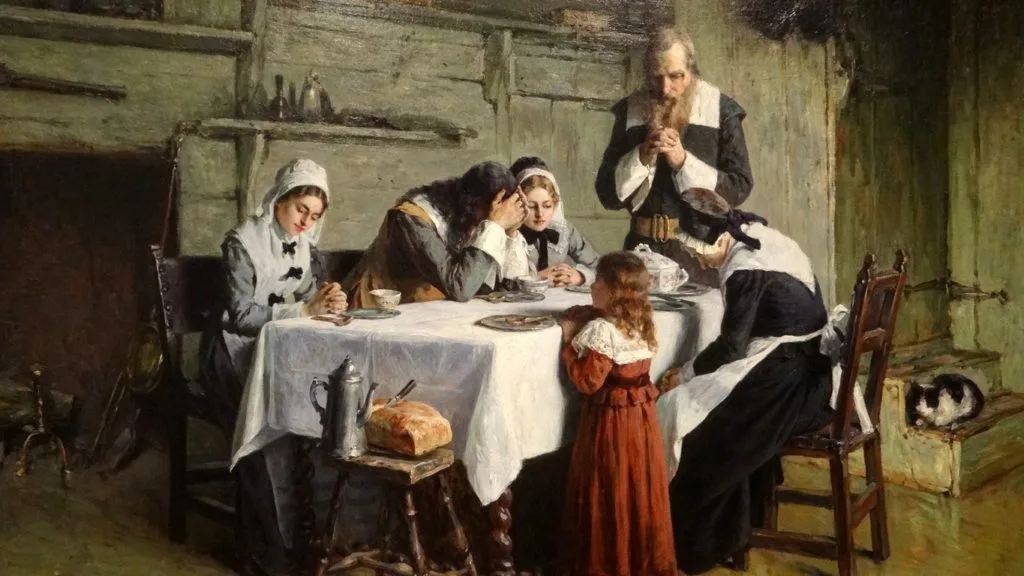Family is the principal way faith is conveyed from one generation to the next. Indeed, the decline of the institutions of marriage and the family has been cited as the principle reason for the decline of Christianity and secularization in the West. Christian apologist John Ferrer of CrossExamine.org, who has also been a fellow at the pro-life Equal Rights Institute spoke at the Southern Evangelical Seminary’s annual apologetics conference in Rock Hill, South Carolina on October 13 regarding the collapse of marriage and the family, and how Christians can respond.
Ferrer said that the work of his wife, Hillary Morgan Ferrer with Mama Bear Apologetics had shown him the importance of apologetics in the raising of children in a Christian home. Many churches, he said, are “still struggling” with both family and apologetics ministry, and also need to understand the importance of their interface. He said the in defending the faith, it is important to defend the family. Many today are trying to defend the faith without proper attention to family ministry. Defending the family is key, he believes, to defending the faith.
As an apologist Ferrer has talked with many unbelievers who have left the Christian faith and said that “the breakdown in their home life in the future led, cause and effect, chain linked to them abandoning the faith.” It is not a simple correlation, he said, between the breakup of families and the loss of faith, but “but a lot of the problems that they had in their home life, were multiplied into their faith later in life.” He believes the current moral revolution centered on sex, marriage, and the family is “no less than a profound threat to civilization itself.”
In addressing social issues today, Christians “are trying to sweep the ocean back into the ocean, because we don’t have any broad enough vision,” to prevent social collapse. We must “reduce the incidence of broken homes,” or “we’re not very serious about defending the faith.”
Today we have “gay marriage, plural marriage, people who don’t know what a woman is.” Same-sex marriage, the rejection of binary sex, and the lack of priority for natural opposite-sex marriage are unprecedented in human history, and we don’t know what their result of these radical changes will be. In this connection, he said that there is an absence of matriarchal or egalitarian societies in history. The attack on parental rights and the relegating of child rearing to the state, if not unprecedented, are part of the same program of social engineering. “Almost everything that makes families distinct is foundational to society,” he said.
The Divine Institution of Marriage
Ferrer proposed to address “what marriage is for, what went wrong, and what are we going to do about it.” He said that “in the creation era, marriage was traditionally understood as established by God.” It was opposite sex, monogamous, and God ordained. Sex differences were understood as real and given by God. Rejection of this order is disobedience of God. There are different sex roles, but “with equal dignity and humanity before God.” Marriage was understood to be for “procreation, fruitfulness, and filling the earth.” The man and his wife are “one flesh” in an institution “joined together by God.” The personal and social development of children in this traditional understanding of marriage is not automatic; children cannot be expected to do instinctively what they need to do in life, as most animals do.
Governing authority is thus built into the family. He observed that “marriage is the only human institution that pre-dates the fall.” Church and state are not as basic as the family. We cannot re-define what God has defined. In our fallen state, marriage is not perfect, but it points to heaven. Marriage, Ferrer said, is “Edenic” (rooted in creation), “Adamic” (a universal norm though subject to the fall), and “prophetic” (an allusion to heaven). It “is an allusion to heavenly fellowship with God … [and to] the marriage feast of the Lamb, the full and final union of Christ and of the church.” Despite all tragedy in the world, marriage is itself is “a comedy … it has a happy ending.” The phrase “happily ever after” is the marriage ideal and real possibility, “and that happily ever after is the marriage of Christ and his bride.”
Marriage is for the worship of God, holiness, and happiness. It is worship in that obedience to God in his divine institution is “a tribute to God’s glory.” Marriage is “a sanctification process,” a growth in holiness, in which one becomes less self-centered. One discovers one’s own selfishness in the attention needed for spouse and children. The happiness marriage produces, he said, is “what Aristotle would call eudemonia,” which basically means “flourishing. Christians would call it beatitude.” It is the joy of doing what one is intended to do. Marriage is right because it is a normal, natural part of our God given nature.
Ancient and Medieval Marriage
Next Ferrer considered “what went wrong.” He said that “the short answer is sin.” While divinely ordained marriage has a structure (Eph. 5:22-33), it has also been shaped by the corruption of human nature and the fallen conditions of the world. He said that in “ancient and medieval marriage … marriage begins to adjust for social duty.” In these worlds, “marriage may involve love, but it’s typically duty based.” Not uncommonly, marriages were arranged or forced. “Brides could sometimes be purchased in slave auctions.” But “among free people, it was a contract among families.” Marriage was a way for neighbors to work together rather than killing each other, or for nations or tribes to live in peace rather than at war. It was a way ‘to create social bonds beyond just parent-child.” Local economies between inter-married families become more secure, as people trusted one another. Marriage was also “transactional.” It might involve a bride price (since the bride’s family was losing one worker), or it might involve a dowry (to provide initial assets to the young husband). Either way, “love just wasn’t enough.”
Marriage was also for “birthing workers” in a largely agrarian society. It was certainly patriarchal, as men fought the wars and defended nation or clan. Inheritance rights were also important. “Marriage was a means to guarantee ‘who gets my land after I die.’” It was legitimate heirs who would inherit, thus giving “some incentive for pre-marital chastity.” He said that “this is the historical norm,” even though prostitution and sexual liaisons were deviations. Polygamy was practiced, especially where the male population was depleted by war, but “historically, polygamy has never been the norm.” Polygamy is associated with wealth, and most people in pre-modern times were relatively poor. Even though there were these various historical circumstances that had practical effects, marriage was still seen as a sacred institution in ancient and medieval times.
Modern Marriage.
Ferrer defined modern marriage as what existed from the common starting point of the modern era (1492) through 1959. The Protestant Reformation at the beginning of this era led to increasing focus on the individual. In this era, he said “marriage was adopted largely for personal convenience.” The further one moves into the modern era, the more secure people are in their circumstances. Many people did not live “as close to the land” as they had previously. “Marriages are increasingly marked by individualism and self-interest.” Nevertheless, “the heritage of Christian marriage is strong.” But marriage commitments were increasingly “ideological” rather than “practical.” Marriage was still seen as having “great value.” At the end of this era, victory in World War II led people to turn to a settled, secure domestic existence focusing on the family. “But it wasn’t seen with quite the same gritty, practical necessity … [as] in the medieval era.” Civil peace was no longer an incentive for marriage.
Doctrines of equality and human rights spread throughout the modern world after the American Revolution. Ethnicity, creed, and ultimately sex were held to be transcended by the doctrine of human equality. Monarchies commonly disappeared. Remarkably, laws against child abuse followed laws against cruelty to animals. People become increasingly aware of foreign lands and distant cultures. He said that “the spirit of the age was to start questioning a lot of foundations.” The scientific revolution engendered “faith in humanity to solve all our problems.” Instead of trusting authorities to determine what’s right and wrong, people increasingly believe they can figure out truth and morals themselves. “You can imagine what that means for family.”
Postmodern Dissolution
If a person goes into marriage “thinking of yourself as the locus of reality,” and self-focus “is the whole way you approach things, not family first, but me first – and then you put two ‘me-first’ people into a marriage and you’re going to get friction.” With the industrial revolution, men increasingly lived outside the home, sometimes with 50, 60, or 70 hours work weeks. Feminism taught that the sexes do not need each other, although both sexes are obviously both needed for procreation and the social stability and happiness that families afford.
“During the postmodern era, marriage limps along, negotiable and disposable … more like a quaint relic of ages past.” The birth control pill, introduced in 1960 (the point at which Ferrer begins the current era), separated sex from procreation. People were initially sold on the idea of “free love.” He said that “there’s never such a thing as free love, it always has a cost.” This is true whether the cost is paid in a happy and fruitful marriage, or in the emotional baggage of promiscuity. In this environment, court sanctioned abortion followed not long after (1973). No fault (or unilateral) divorce was introduced in all states shortly thereafter. Widespread promiscuity before marriage meant that marriage was no longer felt to be the sacred and special union of persons it had been before. With the safety net of the welfare state, a man can now have sex, social respectability, health care, can get hired anywhere, he can have children, he “can have a live-in girlfriend, [and] he can have all the benefits of marriage without the commitments of marriage.” In the 1800s, by contrast, neither social respectability nor material security could easily be had apart from marriage.
Additionally, same-sex marriage is now legalized, “plural marriage and polyamory are looming.” Pedophilia is also pressing for acceptance. Bizarre ideas of marriage are attempted, such as marriage to sex bots, trees, or bridges. Cohabitation is replacing marriage for many. This is despite the fact that cohabitation is more commonly associated with abuse of both female partners and (physically and sexually) of children. All of these distortions “are an insult to God, they are taking his gift and just maligning it.” But this is to be expected in a world focused on self, minimizing responsibilities. Also to be expected is easy access to pornography via cell phones (which, he said, is the equivalent of giving everyone crack cocaine in their pocket).
Some positive signs have appeared in the contemporary world, but they seem in significant measure the result of social collapse. Unplanned and unwed teenage pregnancy has diminished, but Ferrer believes that this is primarily the result of enormous time spent on social media (5 hours a day). Abortion has been declining, especially since the Dobbs decision, but remains in six figures. Fewer marriages mean fewer divorces. “Quiet middlers” in the culture war are disturbed by what they see in the woke left advance. People still have “a deep heart level” belief in natural law. Also, “healthy marriages still strengthen faith, family, church, and society.”
A Christian Response
Ferrer suggested “a three-fold response” to the dissolution of marriage and the family. Specifically, “fight for family, fight for your family, and fight for your church family.” On the first point, “teach a Christian view of marriage.” This means to “impart a theology of marriage, the richness, the beauty of it.” We should also “impart a countercultural Christian world view.” People must be educated to defend a Christian world view in the world at large, not merely within the Christian community. School textbooks and instruction should be reviewed by parents. Recognize that “there is no safe sex if you’re trying to avoid heartbreak.” Push back when core Christian beliefs on sex, marriage, and the family are being labeled “politics,” and off limits to Christian criticism. He noted that slavery was once a political issue, and many Christians avoided it. Controversial issues must not be avoided in the interest of being nice.
Ferrer said that “we also need to do cultural apologetics.” This includes sexual apologetics (e.g. defending biological sex and natural marriage) and prolife apologetics. Spouses should love one another first, then their children. Young people should have marriage mentored for them. Stubborn streaks can be something positive, turned into commitment, and into practicing what you preach.
In fighting for the church family, we should “mobilize for the mental health free fall.” This can be expected as increasing numbers of young people don’t know what sex is and are told “that feeling weird during puberty means you’re probably in the wrong body. No, it just means you’re going through puberty, because that’s what puberty does.” We must resist “celebrity culture over integrity culture.” That is to say, Christian leaders should lead lives of personal and professional integrity, and not be accepted by Christians or their communities otherwise, however popular, knowledgeable, or personally appealing they might be. Further, the Great Commission should be prioritized over church growth strategies. We should not compromise on teaching for the sake of attracting and retaining people. Finally, we should “take sin seriously,” applying church discipline to pastors as well as lay men and women. “Good family is an implicit apologetic,” he said.
This writer would add that courage is needed to defend Biblical standards of sex, marriage and the family, whether in a public, church, or family setting. The easiest path is to acquiesce in the moral revolution around us if we are confronted with a particular case of deviance. Sin is cast by new language and law as an inviolable right, and objection as aggression, when in fact it is an attack on faith, human nature, and common sense, and in many situations, an imposition on the traditionalist objector. Yet where Christian faith and morals and common sense prevail, the devastation and heartache of the moral chaos around us is held at bay. As stable families and churches, and even stable communities can be developed, there can be islands of human flourishing, which will glorify God and benefit both our fellow Christians and the world at large.





Comment by Tom on October 26, 2023 at 5:28 pm
“With the safety net of the welfare state, a man can now have sex, social respectability, health care, can get hired anywhere, he can have children, he “can have a live-in girlfriend, [and] he can have all the benefits of marriage without the commitments of marriage.”
All this is the result of feminism. The women were sold a huge bill of goods. Or, as others have said, How come so much of 2nd and 3rd wave feminism sounds like it was thought up by horny teenage boys?
Comment by David on October 26, 2023 at 6:05 pm
” Marriage was officially recognized as a sacrament at the 1184 Council of Verona. Before then, no specific ritual was prescribed for celebrating a marriage: Marriage vows did not have to be exchanged in a church, nor was a priest’s presence required. A couple could exchange consent anywhere, anytime.
In the decrees on marriage of the Council of Trent (twenty-fourth session from 1563), the validity of marriage was made dependent upon the wedding taking place before a priest and two witnesses,[although the lack of a requirement for parental consent ended a debate that had proceeded from the 12th century.”
Modern marriage is a legal contract. One cannot have contracts with trees, bridges, children, or animals.
Comment by David Mu on October 26, 2023 at 6:58 pm
Without the church coming out against no-fault divorce they are pushing for what is now the worst choice a man can make. No man should allow himself to sign onto a contract where the state will reward the wife with a endless bag of goodies at his expense. Even to him being imprisoned.
As I see it, the church will listen to women, and try to shame men to marry the princess and take it up his ass as something special and wonderful – even an gift from above.
Men are wisely voting with their feet with both the women, and the organizations working for the woman’s benefit.
Just another reason to avoid organized religion.
Comment by Rick Plasterer on October 27, 2023 at 10:54 pm
David,
The reference to marriage with sex bots, trees, and bridges is under the postmodern dissolution heading. Also, unlike other legal contracts, marriage can now be broken at will.
Rick
Comment by Mikeb on October 29, 2023 at 1:39 am
Amazingly I fully agree with David on this one.
Marriage is between a man a woman, and God.
All of the extemporaneous things like licenses or officiants are subordinate to God blessing a man and a woman as married, two joined as one through the gift of God, which no man or state may separate.
To that point I do not believe Gay Marriage is a thing, the state may curse the wind and demand the sun shine at night, but the state is as so much noise in its futility.
What God recognizes is good all else is evil. God does not lie, and God will not be mocked.
Let us have faith and follow Christ, we can do aught but follow his will.